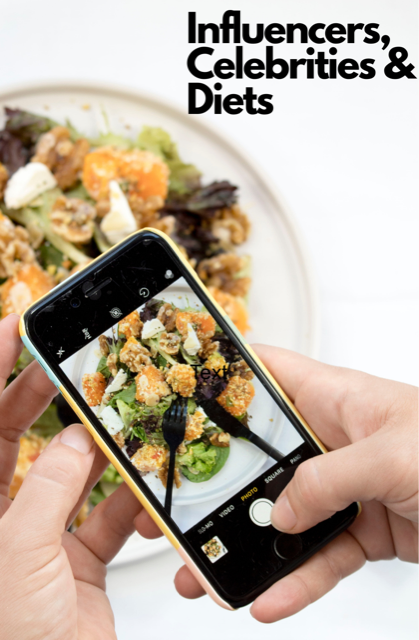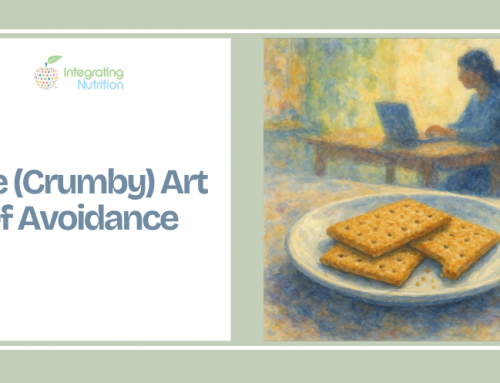Did you ever notice how influencers and celebrities often focus on diets? How we eat, what we eat, our body image; can you think of anything that is so immensely personal, yet at the same time, so widely obsessed-over by our culture? The for-profit juggernaut that promotes fad diets and quick shortcuts (by so-called experts) guaranteeing you the “perfect body” has been going strong for at least a century. And in that hundred years, “diet culture” has shifted with the times to follow the contours of cultural circumstances. Which means that while the weight-loss industry is still being promoted by the traditional purveyors of diets—so called experts pitching books and brick and mortar institutions and franchises—another source has emerged in the last decade: the media-propelled influencer.
People with no formal nutrition training selling themselves as weight loss coaches are promoting unhealthily restrictive diet plans at hefty fees; in some cases, their credibility resting on celebrity statuses. Glitz and glamour may be fun on television, but are not a workable substitute for, you know, actual board certified nutrition and behavioral healthcare training. Consumers are certainly free to work with any coach or over-priced fad diet system they want to, but what concerns me is that the celebrity of these plan purveyors gives their dubious eating plans a legitimacy that is questionable. I’ve commented before on the negative influence social media has on people at-risk for eating issues, and this type of viral celebrity is part of that whole dynamic. My goal here is not to shame anyone for using fad diet systems so much as to remind people to be careful. As the old adage goes, if something seems too good to be true, it probably is. And as the new adage continues, if this something is promoted by super-fabulous celebrities.
But the news here is not all bad. In response to the increasing presence of dubious “diet gurus” there are also social media influencers pushing back in viral challenges to these latest weight-loss programs. I also am noticing some upbeat elements on TikTok, that super-popular app where people post short videos about all sorts of things, from dance moves to cute animal videos. A little while ago, I pointed out the destructive aspects of many videos on TikTok that promote extreme eating restriction as well as body-shaming. Since then, I have discovered such TikTok influencers as @victoriagarrick4, who posts videos on intuitive eating and her journey learning to resist binge eating issues. With brave and honest people like Victoria posting, perhaps the downside of social media impact has some rays of hope after all!





